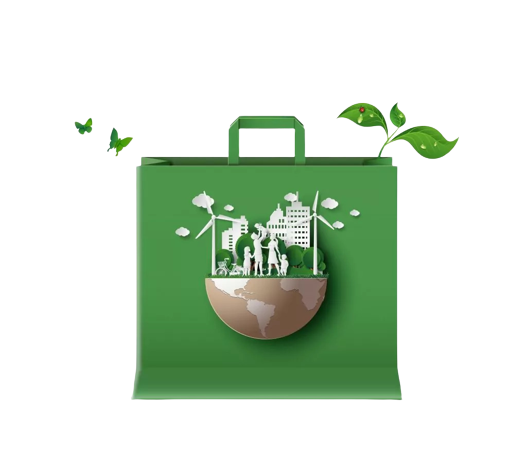Introduction
In this age of environmental consciousness, disposables are becoming a growing concern. Something as ordinary to our day-to-day life is the spoon. Disposables made of plastic are cheap and convenient to use but destroy nature and make waste that cannot be undone. Biodegradable spoons are environmentally friendly alternatives that do as much to reduce pollution as they are convenient to implement day-to-day.
From restaurants to houses to events, opting for biodegradable cutlery is opting for green drinking cups instead of plastic ones—a small step that does so much good to the world.
What Are Biodegradable Spoons?
Biodegradable spoons are made from biodegradable natural plant matter like wheat pulp, sugarcane bagasse, or from cornstarch. They do not deposit harmful residues when they biodegrade in comparison to plastic spoons.
Main benefit of bio-degradable spoons is:
- Earth-Friendly: They minimize waste, a compostable bag to transport or a compostable bin bag.
- Food-Safe: Hypoallergenic and safe to use on all hot and cold foods.
- Compostable Options: Replaceable by other green options like biodegradable cups or sambar pouches that are compostable.
Biodegradable spoons are a suitable option among families, restaurants, and events that seek a light impact on nature.
What Are Plastic Spoons?
Petrol plastic is made into plastic spoons and are nowadays very popular as their affordability and durability create a product that is desirable. They are:
- Inexpensive and Convenient: Plastic spoons are long-lasting and convenient to purchase in a package.
- Environmentally Destructive: They do not decompose for centuries and often end up in oceans or landfills, where they kill animals.
In contrast to environmentally friendly options like biodegradable courier bag or biodegradable feces bag for dog poop bags, plastic spoons pollute the environment even when disposed of.
Biodegradable Spoons vs. Plastic Spoons: Key Differences
| Feature | Biodegradable Spoons | Plastic Spoons |
| Material | Plant-based (cornstarch, sugarcane, etc.) | Petroleum-based synthetic polymers |
| Decomposition | Break down in months under composting conditions | Take hundreds of years to decompose |
| Eco-Impact | Compostable, reduces landfill waste | Pollutes landfills and oceans |
| Food Safety | Non-toxic, safe for hot/cold foods | May contain chemical additives |
| Durability | Strong but may soften in very hot liquids | Very strong, resistant to heat and liquids |
| Cost | Slightly more expensive than plastic | Cheap and widely available |
| End-of-Life | Returns to soil or compost | Ends up as long-lasting waste |
When to Choose Biodegradable Spoons?
No more than when you purchase biodegradable bubble warm mailers or a compostable dress bag—these do just as much of a job as plastic but are far less harmful to the environment. You might wonder about providing biodegradable spoons in such events:
- Green Events: Weddings, parties, or business events that have sustainability as an issue.
- Restaurants and Cafes: Stop using single-use plastic and entice environmentally sensitive customers.
- Outdoors: Picnics or camping that can impact nature if plastic waste is used.
- Hot and Cold Foods: Biodegradable spoons will safely work for both, just as biodegradable stretch film will accommodate a lot of different types of packaging requirements.
This and many other green foods like green bottles of water or bio-disposal glasses make possible a completely green dining experience.
Conclusion
Substituting plastic spoons with biodegradable spoons is a small buteffective step towards green living. While plastic is cheap and handy, its effect on our environment is astounding. Biodegradable spoons made fromrenewable sources are a safe, handy, and environmentally friendly alternative.
Usage of such spoons in houses, restaurants, or parties is a tiny step to a less polluted environment just as usage of compostable supermarket bags or biodegradable courier bags mailbags in lieu of plastics. Small steps count a lot towards less pollution and safe wildlife.
FAQs
Q1. Are biodegradable spoons dishwasher safe?
Ans : Most biodegradable spoons cannot be used safely in a dishwasher as they are destroyed by warm or hot water and temperatures. These must be used as disposable utensils.
Q2. Can biodegradable spoons be recycled?
Ans: No, they are typically compostable and cannot be recycled as such as biodegradable drinking glasses.
Q3. Biodegradable spoons how long do they last?
Ans: They will only disintegrate in a few months under optimum composting situations, while plastic spoons will maintain their shape complete even for centuries.
Q4. Would biodegradable spoons be more expensive than a plastic spoon?
Ans: They are more expensive but prices fall as sales improve as with biodegradable bubble wrapping or sambar packets that are compostable.
Q5. Are biodegradable spoons safe when having hot or acidic foods?
Ans: Yes, all of them are made to have safely hot and acidic foods, although some of them will be soft when having excessively high temperatures. Always check on the manufacturer’s instructions.


